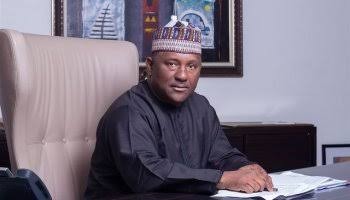
Nigerian billionaires feel pain as Abdul Samad Rabiu loses a third of his fortune in Naira devaluation, losing nearly $3 billion in a day Mr. Rabiu’s valuation fell by $2.73 billion to $5.54 billion.
Most wealthy Nigerians maintain most of their business exposure in the country, which means their wealth is denominated in Naira. In other words, Rabiu’s wealth valuation was further weakened by the recent unification of the naira’s exchange rate system.
The Source of Abdul Samad Rabiu’s Wealth
According to the company’s website, most of his fortune comes from shares in BUA Cement, Nigeria’s second-largest cement producer. He owns about 98% of the company’s shares directly and through three other companies, according to its first quarterly report for 2023 and annual report for 2022. BUA Cement started public trading in Nigeria in January 2020. BUA Foods went public two years later in January 2022.
He controls a 93% stake in BUA Foods, which owns Nigeria’s largest noodle and flour mill, according to the company’s first quarter 2023 and 2022 annual reports.
Rabiu was born in 1960 in Kano, a city in northern Nigeria. His late father, Ishak Rabiu, founded Ishak Rabiu & Sons which includes manufacturing, finance, and real estate.
Abdul Samad Rabiu’s entrepreneurial journey
He studied economics at Capital University in Ohio before returning to Nigeria at the age of 24 to run the family business. Rabiu founded the BUA Group in 1988, importing food and steel. After a series of mergers, including the 2009 acquisition of Cement Company of Northern Nigeria (CCNN), the company has become a producer of cement and sugar.
Howbeit, investors are eyeing big Nigerian cement producer BUA Group as it completes plans to build a new plant that will add another 5 million tons of cement to the country’s supply capacity.
The company said the new supply will be enough to export to neighboring African countries and will also bring down commodity prices, which have risen more than 80% in the past 24 months.
Abdul Samad Rabiu, chairman and founder of the group, told reporters at the International Finance Corporation (IFC) and partners as they signed the contract for a new cement plant to be built in northern Nigeria. The facility, which is estimated to cost US$500 million, will create jobs and contribute to economic and infrastructure development in Nigeria and other countries, he said.
IFC’s $500 million credit facility includes $160.5 million in loans from IFC’s own accounts, $94.5 million in loans through the Managed Co-financing Portfolio Program (MCPP), and two parallel loans from syndication partners. $45 million (Nairametrics)

